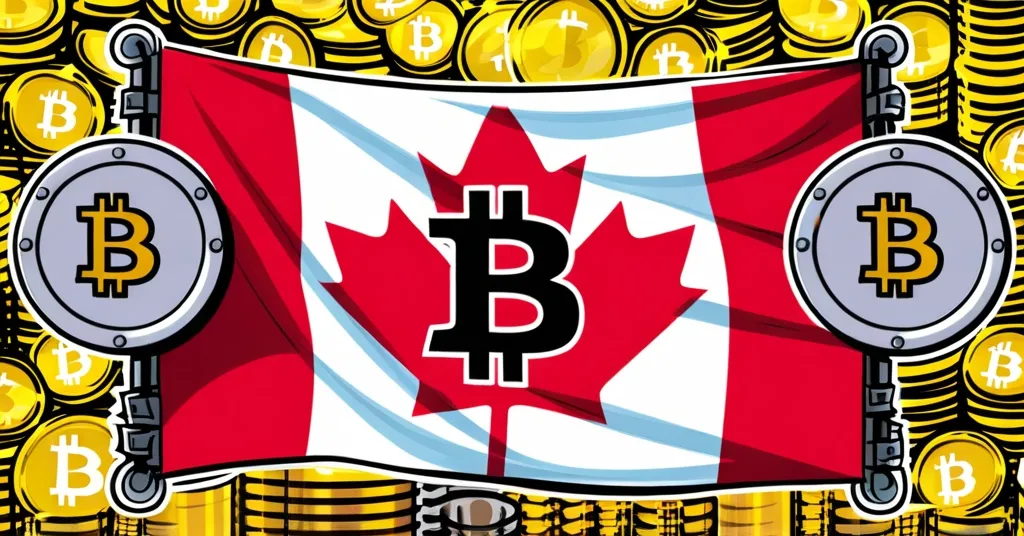Poilievre’s Bitcoin Vision: Canada’s Strategic Reserve Plan Unveiled

Canada’s Bitcoin Future: Poilievre’s Vision for a Strategic Reserve
Rumors of Justin Trudeau stepping down as Canadian Prime Minister have sparked speculation about a potential shift towards a more Bitcoin-friendly government, with Pierre Poilievre leading the charge. Poilievre, the Conservative Party leader, holds a commanding lead in polls, advocating for policies that could embrace digital assets, including the establishment of a Strategic Bitcoin Reserve.
- Trudeau rumored to step down
- Poilievre’s significant lead
- Proposal for Strategic Bitcoin Reserve
- Bitcoin’s price surge
- Opposition to CBDCs
As Justin Trudeau considers stepping down, the political landscape in Canada could be on the brink of a major change. Pierre Poilievre, with a 23% lead over the Liberals, is poised to take the helm. His advocacy for Bitcoin isn’t just lip service; it’s a strategic move to challenge the traditional financial systems that he believes have let Canadians down. Poilievre’s vision includes the creation of a Strategic Bitcoin Reserve, inspired by similar initiatives in the U.S., as a way to integrate Bitcoin into Canada’s financial strategy.
Bitcoin’s value has soared, hitting a peak of over $108,000—a 170% increase since Poilievre first championed the cryptocurrency. At the time of writing, Bitcoin trades at $99,318, reflecting its up-and-down but potentially rewarding path. Poilievre uses this surge to argue for Bitcoin as a tool against inflation, which he attributes to the current government’s “money-printing deficits.”
Poilievre’s criticism of the Bank of Canada is sharp. He accuses the institution of financial illiteracy, pointing out its erroneous prediction of deflation before inflation hit a 30-year high:
“The Bank Of Canada says Bitcoin-ers lack financial literacy. This from the same people who promised we’d have ‘deflation’ right before inflation hit a 30 year high. It is our central bank that is financially illiterate.”
His stance on Central Bank Digital Currencies (CBDCs) is equally firm. CBDCs are digital versions of a country’s currency, controlled by the central bank, similar to physical cash but in digital form. Poilievre has made it clear:
“There will be NO Central Bank Digital Currency.”
David Bailey, CEO of BTC Inc, has expressed confidence in Poilievre’s plans:
“Pierre Poilievre will deliver Canada a Strategic Bitcoin Reserve.”
Poilievre’s vision for Canada goes beyond just embracing Bitcoin. He aims to promote sound money policies to combat inflation, which he believes has been exacerbated by the current government’s fiscal policies:
“Money-printing deficits make our wages ‘go up in smoke’. #JustinFlation. We need sound money again—and also the freedom for buyers and sellers to choose Bitcoin and other technology.”
The potential shift towards a Bitcoin-friendly government under Poilievre aligns with a global trend where nations are exploring how to integrate digital assets into their financial strategies. However, it’s worth noting that while a federal change in leadership could signal a new direction, the regulation of securities, including cryptocurrencies, is primarily managed by provincial regulators in Canada. This means that Poilievre’s impact on crypto policy might be limited without cooperation from these provincial bodies.
Additionally, while Poilievre has been a vocal supporter of Bitcoin in the past, recent reports suggest he has been relatively quiet on the topic. This silence could indicate a shift in focus or strategy as he prepares for potential leadership. Furthermore, the political landscape could be influenced by other candidates such as Mark Carney, who has expressed views on crypto and stablecoins, potentially introducing a different perspective on digital assets in Canada.
Despite these complexities, the idea of a Strategic Bitcoin Reserve remains intriguing. Such a reserve would be a national stockpile of Bitcoin, mirroring proposals in the U.S., aimed at integrating the cryptocurrency into Canada’s financial strategy. Poilievre’s advocacy for Bitcoin and his opposition to CBDCs highlight a clear ideological divide between traditional financial systems and the emerging crypto economy.
Imagine paying your taxes in Bitcoin, or Canadian businesses accepting it as easily as cash. Poilievre’s stance on Bitcoin might just be the financial equivalent of a Canadian goose taking a stand—no backing down and definitely not afraid to ruffle some feathers.
While a Bitcoin reserve sounds promising, critics argue it could lead to market manipulation or regulatory challenges. A Strategic Bitcoin Reserve could stabilize Bitcoin’s value but might also face opposition from those wary of government involvement in cryptocurrencies.
As Canada stands at a financial crossroads, the question remains: Will Bitcoin become a cornerstone of our economy, or just a political talking point?
Key Takeaways and Questions
- Could a change in Canadian leadership lead to more Bitcoin-friendly policies?
Yes, if Pierre Poilievre becomes the next PM, his history of advocating for Bitcoin and his proposed Strategic Bitcoin Reserve suggest a shift towards more supportive policies.
- What is a Strategic Bitcoin Reserve?
A Strategic Bitcoin Reserve would be a national stockpile of Bitcoin, similar to proposals in the U.S., aimed at integrating Bitcoin into the country’s financial strategy.
- How has Bitcoin’s price performance influenced political discourse in Canada?
Bitcoin’s significant price surge, up to over $108,000, has been used by Poilievre to argue for Bitcoin as a tool against inflation, influencing his political narrative.
- What is Pierre Poilievre’s stance on Central Bank Digital Currencies?
Poilievre is strongly opposed to CBDCs, stating emphatically that there will be no such currency under his leadership.
- Why is the Bank of Canada criticized by Poilievre?
Poilievre criticizes the Bank of Canada for its perceived financial illiteracy and for wrongly predicting deflation before a significant inflation spike, advocating for sound money like Bitcoin instead.



